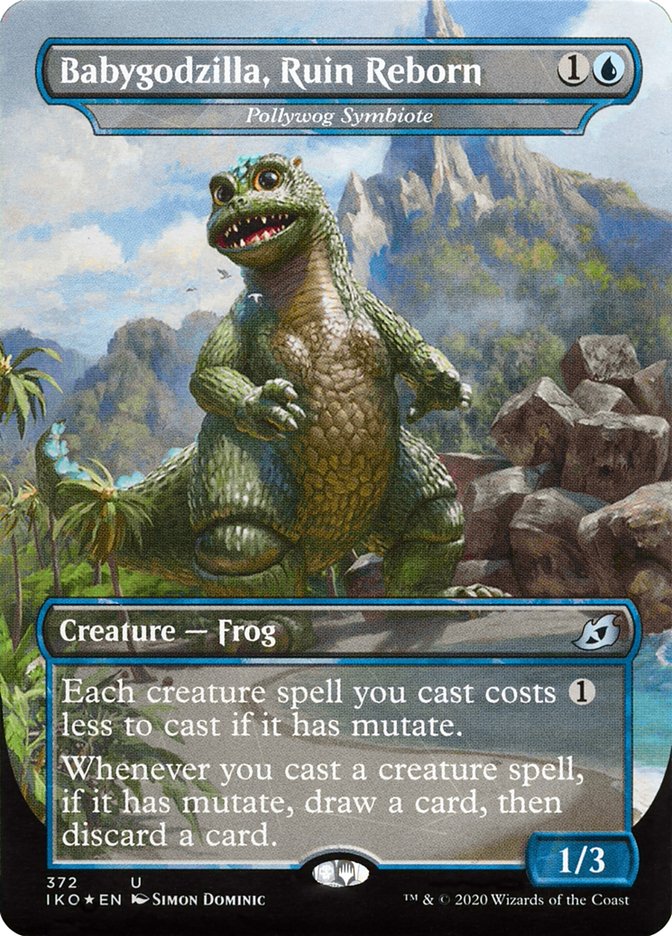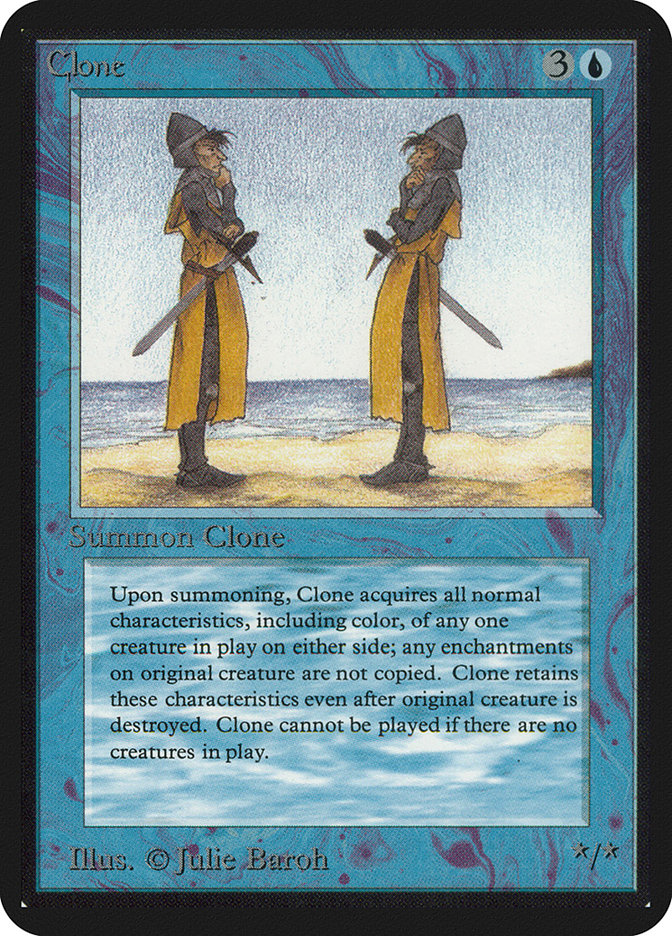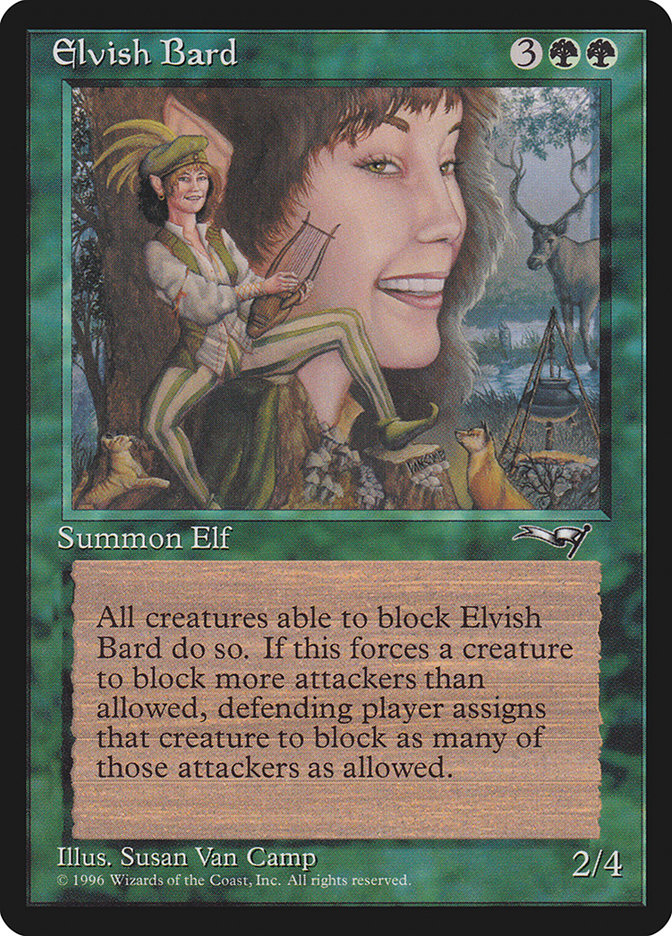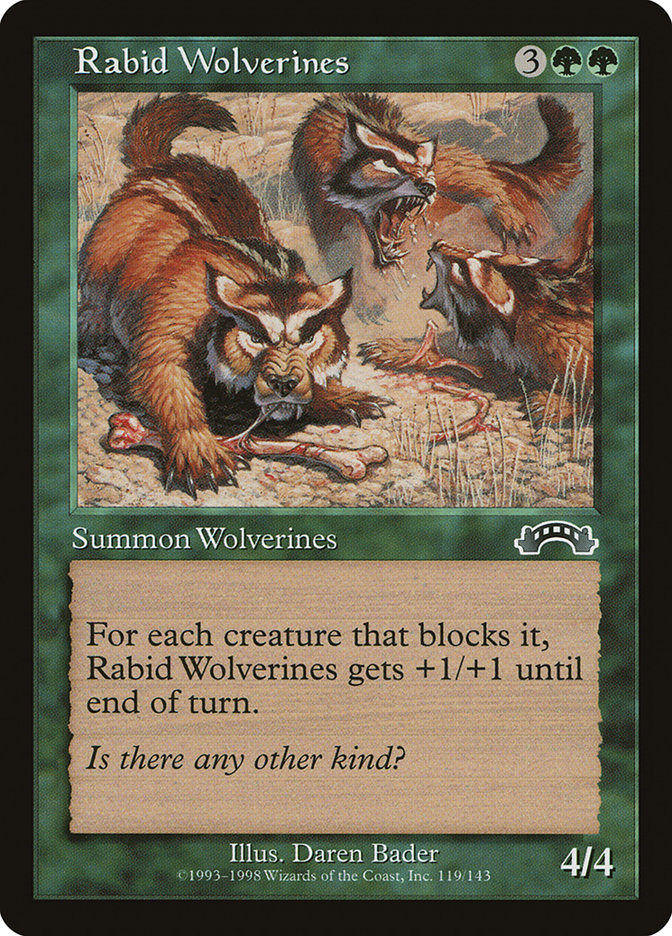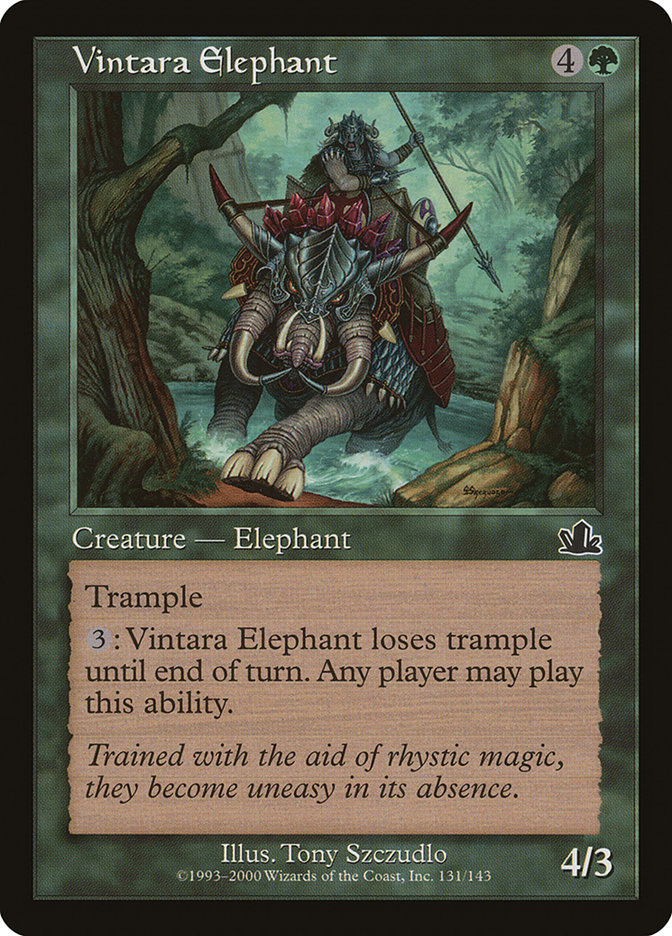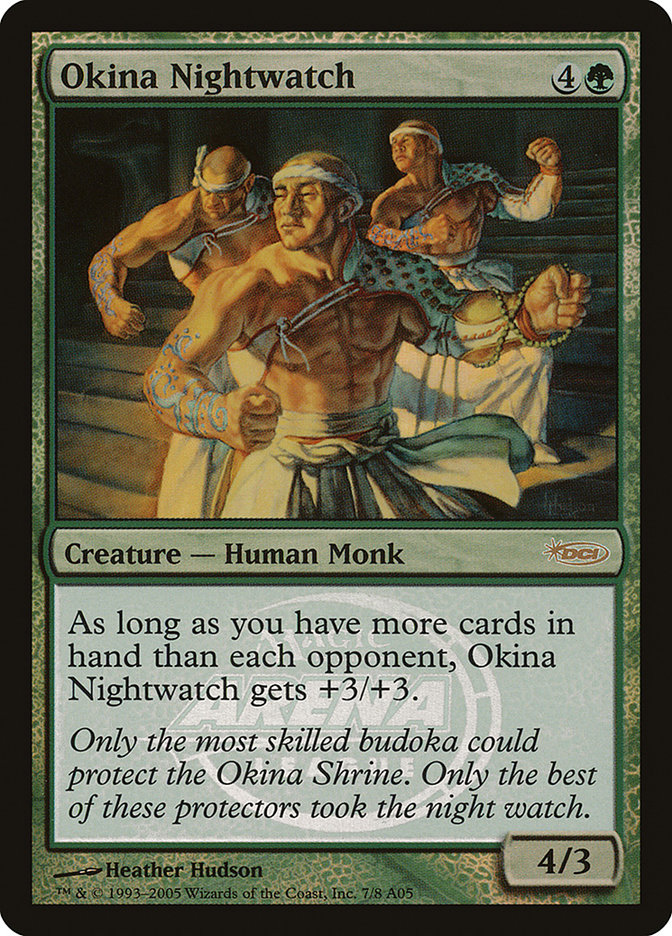Invasion of Muraganda // Primordial Plasm MTG Card
| Converted mana cost | 5 |
| Rarity | Uncommon |
| Type | Creature — Ooze |
| Released | 2023-04-21 |
| Set symbol | |
| Set name | March of the Machine |
| Set code | MOM |
| Power | 4 |
| Toughness | 4 |
| Number | 192 |
| Frame | 2015 |
| Layout | Transform |
| Border | Black |
| Illustred by | Adam Paquette |
Text of card
At the beginning of combat on your turn, another target creature gets +2/+2 and loses all abilities until end of turn.
Before the tree of life branched into predators and prey, there was only shapeless hunger.
Cards like Invasion of Muraganda // Primordial Plasm
The Invasion of Muraganda // Primordial Plasm card brings a unique flavor to the creature-rich environment of Magic: The Gathering. It resonates with cards like Pollywog Symbiote, which also supports the play of creatures, especially ones with mutate. Though both champion creature-based strategies, the Primordial Plasm extends the concept with its ability to become any permanent card on the field.
Exploring similar design spaces, Clone is another classic card that echoes the adaptability of Primordial Plasm. Clone allows you to copy any creature already in play, a reminiscent mechanic of Primordial Plasm’s transformative power. Nonetheless, Primordial Plasm’s versatility in becoming any type of permanent, not just creatures, marks a significant distinction.
When weighing options, Invasion of Muraganda // Primordial Plasm presents players with an adaptable asset in creature and non-creature strategies alike, potentially impacting multiple facets of gameplay. Its chameleon-like flexibility positions it as a noteworthy contender amongst transformative cards in the MTG universe.
Cards similar to Invasion of Muraganda // Primordial Plasm by color, type and mana cost
Card Pros
Card Advantage: Invasion of Muraganda // Primordial Plasm offers a significant edge by permitting numerous creature tokens to enter the battlefield, effectively multiplying the number of threats your opponent must deal with.
Resource Acceleration: By allowing the creation of creature tokens without the need for casting multiple spells, this card serves as a resource accelerator, freeing up mana for other strategic moves within the same turn or upcoming ones.
Instant Speed: The ability to play this card at instant speed provides the flexibility to respond adaptively to the game’s unfolding events, potentially outmaneuvering opponents by generating creature tokens at the most opportune moments.
Card Cons
Discard Requirement: Invasion of Muraganda // Primordial Plasm brings to the battlefield a notable con for players who value their hand. The card demands the discard of another card upon casting, potentially leaving a strategist with fewer options later in the game. For those built around synergistic plays or combo decks, this cost can be particularly steep, leading to situations where crucial pieces are lost, thus disrupting a well-laid plan.
Specific Mana Cost: Another limiting aspect of this card lies in its mana demands. Being tied to specific mana requirements, it narrows deck construction, especially considering that it requires mana from two different colors. This stipulation may complicate plays in decks that are not heavily tailored around mana fixing or those that prefer a more forgiving mana base to cast a wide array of spells.
Comparatively High Mana Cost: Lastly, the mana investment for Primordial Plasm is not insubstantial. Considering the overall mana curve and available alternatives, some players might find the cost high relative to the creature’s impact on the game. In competitive formats where efficiency is paramount, the card competes with other efficient creature spells which could potentially offer more immediate or impactful benefits upon hitting the table.
Reasons to Include in Your Collection
Versatility: Invasion of Muraganda // Primordial Plasm can be adapted to a diverse set of decks, adding value to ramp and creature-focused strategies with its ability to generate a substantial board presence.
Combo Potential: This card’s capability to create a wide array of token creatures sets the stage for numerous synergies and combos, particularly in decks that thrive on creature count or benefit from the sacrifice of creatures for greater effects.
Meta-Relevance: As gameplay often evolves, having Invasion of Muraganda // Primordial Plasm in your arsenal means you can adjust to creature-centric metas or exploit its potential to outpace opponents by amassing a formidable creature army swiftly.
How to Beat
Confronting the Invasion of Muraganda or Primordial Plasm in MTG can be challenging but there are effective strategies to overcome this new hurdle in the game. Given the adaptability and potential size of the Primordial Plasm, removal spells that bypass the creature’s power and toughness metrics are ideal. Consider cards that offer unconditional removal, such as Path to Exile or Fatal Push, to manage the Plasm before it becomes a looming threat on the battlefield. Board wipes, like Wrath of God or Damnation, serve as a clean reset, especially useful if the Primordial Plasm has already evolved into a formidable presence.
Countering spells is another strong line of defense. By using counters like Counterspell or Dovin’s Veto, you prevent the Plasm from ever entering play, which is critical in matchups where your opponent relies heavily on the singular threat. Moreover, graveyard manipulation, utilizing cards such as Scavenging Ooze or Leyline of the Void, can be a proactive approach to diminish the power of recursive threats that the Plasm or similar cards might pose.
Ultimately, having a multifaceted plan against the Primordial Plasm ensures that you’re prepared not just for a one-time encounter but for the various ways it might manifest in an opponent’s strategy in MTG.
Where to buy
If you're looking to purchase Invasion of Muraganda // Primordial Plasm MTG card by a specific set like March of the Machine, there are several reliable options to consider. One of the primary sources is your local game store, where you can often find booster packs, individual cards, and preconstructed decks from current and some past sets. They often offer the added benefit of a community where you can trade with other players.
For a broader inventory, particularly of older sets, online marketplaces like TCGPlayer, Card Kingdom and Card Market offer extensive selections and allow you to search for cards from specific sets. Larger e-commerce platforms like eBay and Amazon also have listings from various sellers, which can be a good place to look for sealed product and rare finds.
Additionally, Magic’s official site often has a store locator and retailer lists for finding Wizards of the Coast licensed products. Remember to check for authenticity and the condition of the cards when purchasing, especially from individual sellers on larger marketplaces.
Below is a list of some store websites where you can buy the Invasion of Muraganda // Primordial Plasm and other MTG cards:
 BUY NOW
BUY NOW BurnMana is an official partner of TCGPlayer
- eBay
- Card Kingdom
- Card Market
- Star City Games
- CoolStuffInc
- MTG Mint Card
- Hareruya
- Troll and Toad
- ABU Games
- Card Hoarder Magic Online
- MTGO Traders Magic Online
See MTG Products
Legalities
Magic the Gathering formats where Invasion of Muraganda // Primordial Plasm has restrictions
| Format | Legality |
|---|---|
| Standard | Legal |
| Historicbrawl | Legal |
| Historic | Legal |
| Legacy | Legal |
| Oathbreaker | Legal |
| Gladiator | Legal |
| Alchemy | Legal |
| Pioneer | Legal |
| Commander | Legal |
| Modern | Legal |
| Future | Legal |
| Vintage | Legal |
| Duel | Legal |
| Explorer | Legal |
| Brawl | Legal |
| Timeless | Legal |
Rules and information
The reference guide for Magic: The Gathering Invasion of Muraganda // Primordial Plasm card rulings provides official rulings, any errata issued, as well as a record of all the functional modifications that have occurred.
| Date | Text |
|---|---|
| 2023-04-14 | A Siege’s controller can’t be its protector. If a Siege’s protector ever gains control of it, they choose a new player to be its protector. This is a state-based action. |
| 2023-04-14 | A battle can be attacked by all players other than its protector. Notably, this means a Siege’s controller can attack it. |
| 2023-04-14 | A battle can be dealt damage and be target of spells and/or abilities that target “any target.” |
| 2023-04-14 | A battle’s “defense” is displayed in the bottom right corner of the card. A battle enters the battlefield with that number of defense counters. If another permanent enters the battlefield as a copy of a battle, it also enters with that number of defense counters. |
| 2023-04-14 | A creature that loses all abilities because of Primordial Plasm’s ability (slurp) may later gain abilities. |
| 2023-04-14 | As a Siege enters the battlefield, its controller chooses an opponent to be its protector. |
| 2023-04-14 | Battles can’t attack or block, even if one also becomes a creature. If an attacking or blocking creature somehow becomes a battle in addition to being a creature, it is removed from combat. |
| 2023-04-14 | Damage dealt to a battle causes that many defense counters to be removed from it. |
| 2023-04-14 | If a Siege never had defense counters on it (perhaps because a permanent became a copy of one), it can’t have its last defense counter removed. It will be put into its owner’s graveyard. You won’t exile it or cast the other face. |
| 2023-04-14 | If a battle has no defense counters, and it isn’t the source of a triggered ability that has triggered but not yet left the stack, that battle is put into its owner’s graveyard. This is a state-based action. This doesn’t cause a Siege’s intrinsic triggered ability to trigger. |
| 2023-04-14 | If a battle that’s being attacked somehow stops being a battle, it is removed from combat. Similarly, if its controller changes in the middle of combat, it is removed from combat. |
| 2023-04-14 | If a non-battle permanent that is already on the battlefield become a copy of a Siege, its controller chooses one of their opponents to be that battle’s protector. However, it will most likely be put into its owner’s graveyard because it has no defense counters (see below). |
| 2023-04-14 | If a permanent that is represented by a transforming double-faced card becomes a copy of a Siege, it will be exiled as that Siege’s triggered ability resolves, then it will be cast transformed. Note that this applies only to transforming double-faced cards, not to modal double-faced cards that can normally be played using either face. |
| 2023-04-14 | If a token or a card that isn’t represented by a transforming double-faced card becomes a copy of a Siege, it can’t be cast as its triggered ability resolves. It will remain in exile. If it’s a token, it will cease to exist the next time state-based actions are performed. |
| 2023-04-14 | If the creature affected by Primordial Plasm’s ability (slurp) had an ability defining its power and/or toughness, that base value will become 0. In many situations, having a base toughness of 0 would be a problem, but Primordial Plasm’s ability (slurp) helpfully provides +2/+2, so the creature should survive. |
| 2023-04-14 | If the creature you control is an illegal target as the ability tries to resolve, you won’t put a +1/+1 counter on it. If that creature is a legal target but the other creature isn’t, you’ll still put the +1/+1 counter on the creature you control, but neither creature will deal or be dealt damage. |
| 2023-04-14 | In a multiplayer game, if the protector of a battle leaves the game and that battle is not currently being attacked, its controller chooses a new protector for it as a state-based action. If it is being attacked, its controller chooses a new protector for it once no creatures are attacking it. This means that it continues to be attacked and can be dealt combat damage as normal. |
| 2023-04-14 | Only creatures controlled by a battle’s protector can block creatures that are attacking that battle. This means a Siege’s controller can never assign creatures to block for it. |
| 2023-04-14 | Sieges each have an intrinsic triggered ability. That ability is “When the last defense counter is removed from this permanent, exile it, then you may cast it transformed without paying its mana cost.” |
| 2023-04-14 | You can choose only a creature you control as a target for Invasion of Muraganda’s enters-the-battlefield ability. |

